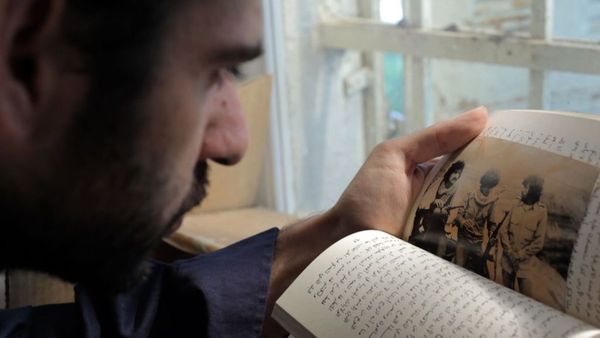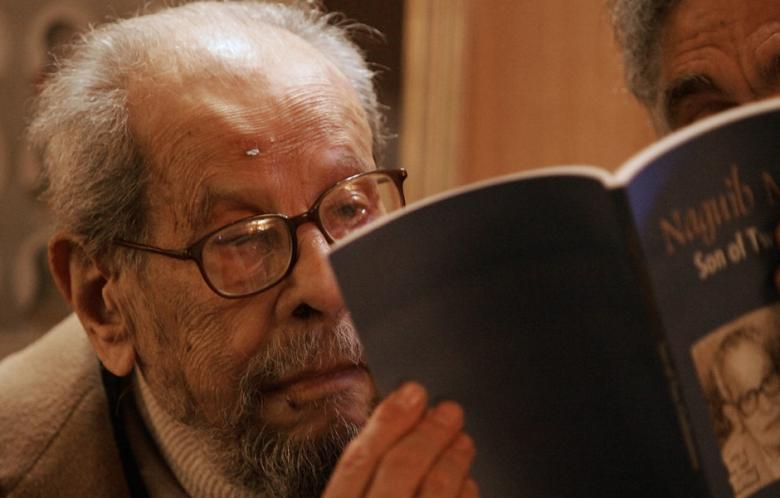The Druze of Belgrade is a fiction novel written by the Lebanese writer and journalist Rabee Gaber. The novel won the 2012 International Prize for Arabic Fiction, which is an annual prize, directed in participation with the British Foundation of the Booker Prize and supported by the Abu Dhabi Tourism and Culture Authority.
Gaber was inspired by the 1860 Mount Lebanon civil war, also known as the Civil War in Syria. Christian Maronite peasants revolted against their Druze overlords, which culminated in a war between the Christian Maronites on one side and the Druze and Muslims on the other side.
 The Druze military was victorious and massacres against Christians took place in Mount Lebanon and Damascus, leading to the death of 20,000 Christians and the destruction of 380 villages and 560 churches. This tragedy ended with the French military’s intervention. As punishment for their crimes, many Druze were exiled to Belgrade.
The Druze military was victorious and massacres against Christians took place in Mount Lebanon and Damascus, leading to the death of 20,000 Christians and the destruction of 380 villages and 560 churches. This tragedy ended with the French military’s intervention. As punishment for their crimes, many Druze were exiled to Belgrade.
The novel narrates the story of Hanna Jacob, a Christian egg-seller, who was present at the port when a Druze’s father bribed an Ottoman soldier to free his son. Jacob was taken instead of this liberated Druze son.
This scene is a significant metaphor as it sheds light on the possible cooperation, in reality, between Ottomans and Druze, which led to wise-scale suffering among Christians.
Almost all the events of the novel occur in the Balkan area, where the novel narrates the suffering of the prisoners over a 12-year period.
The highest point of the novel is that it is not only about a historic period that shaped the area, it also acts as a traveler’s guide, taking the reader on a free excursion through the Balkans.
During the journey in exile, there was a scene in Bosnia in which the writer describes the geographic area. “While the weather was getting colder, the Sava River was warm and calm. Prisoners saw dhows loaded with goods.”
The writer also describes the architecture of Bosnian villages as having “wide terraces full of fruits to be dried and meat for curing”. He also describes women and traditions: “She was wrapped in linen, only her black eyes could be seen. She was taking handfuls of rocky salt from bags, and spreading it all over the slices of meat.”
Balkan people are known for their handmade and fully decorated art. The writer manages to catch this detail in many scenes, including the scene when he described the journey of the prisoners, while they were leaving Herzegovina: “The Druze knew Macedonian women from their fascinating kerchiefs and from their wide eyes.”
As the Ottoman Empire included many nationalities and people from far corners of the world, it was common that nationalities replaced surnames or that one would call an individual by his nationality. This was depicted in the novel, by including characters whose names were Samoil the Bulgarian and Ahmed the Bosnian.
The Christian-Arab Jacob met people from different cultures during his exile-journey, which gives the reader background about how these people and their nations were at the time.
One of these individuals was a Macedonian shepherded. “A face with black hair and eyes appeared. He took out bread, cheese, and black olives, which he offered to Jacob. The Macedonian eyes looked to Jacob with real cordiality.”
Also in Herzegovina’s prison, the writer described a kind scene, where a Croatian man helped Jacob. “The prisoner who helped him was a Croatian from the north. His family is in Zagreb (current Croatian capital). The Croatian prisoner ended in Herzegovina’s prison after he fought with soldiers, as he stole cattle in Sarajevo.”
Throughout the novel, there was an obvious criticism towards the Ottomans’ attitude. Although Bosnians were thought of as Ottoman Muslims, the writer managed to clarify to the reader that they were not the same, attributing good qualities to Bosnians while describing a scene in Bosnia. “Some men just finished Al-Gomaa prayer. They argued with the Ottoman soldiers and forced them to let the prisoners rest. Muslim imams went on giving water and dates to the prisoners. They also gave them bread, which just came out of the oven, and meals just cooked.
Between lines, through the writer’s metaphors, the reader could perceive the message that wars were more about interests of power and not religious beliefs. This appeared when he focused on the harmony between Christian and Muslim rituals. “The sound of the church’s bells met the sound of the mid-day’s (Al-Zohr) prayer. The writer also referred to Bosnians as generous “old women, revealing their face disappeared, they were scared of us! They came back carrying bread and water for soldiers and prisoners”.
The writer also delivered the message of peace through a friendly conversation between Jacob and one of the Druze in the prison of Belgrade. There was a similar scene in the Spanish poem of El Cantar del Mio Cid, when Rodrigo Diaz de Vivar, known as a hero who fought against Muslims and Arabs, was protected on an occasion by his Muslim-Arab friend Abdel Rahman.
In addition to this cultural, human, and geographical side of the novel, and despite being a work of fiction, it includes numerous political-historical incidents and facts. Prisoners were working for the Ottoman governor of Belgrade. As a duty and part of their punishment, prisoners worked by protecting Belgrade’s Fortress.
In a chapter titled “1862 Belgrade’s Bombardment”, the writer depicts how Russian-Ottoman relations were not on good terms and how Russia has always defended Serbians. In the book, amid the goal to protect the fortress, a Russian consul visited the fortress to speak on behalf of the Serbs, protesting securing the fortress, while the Austrian consul spoke on behalf of Austrians.
The Treaty of Bucharest, signed between the Turkish Empire and the Russian Empire in Bucharest in 1812, was mentioned in this chapter as part of the events’ sequence.
The novel also shows how in Serbia, Ottomans were not a welcome governor.
Ottomans were not welcomed conquerors in Hungary, Serbia, and Bulgaria, as these countries suffered greatly under Ottoman rule. Even now, the people from the Hungarian town of Mohács celebrate Busójárás, which is a celebration that symbolises their victory against the Ottomans.
The Druze of Belgrade is a fascinating and gripping read to discover whether Jacob will make to it back to his homeland or will remain exiled.




